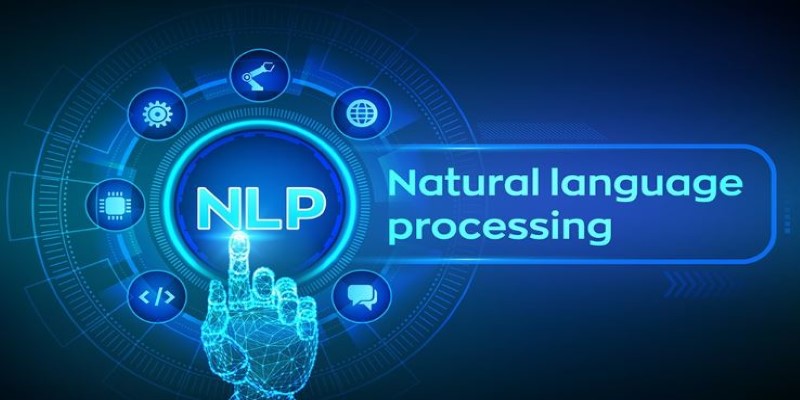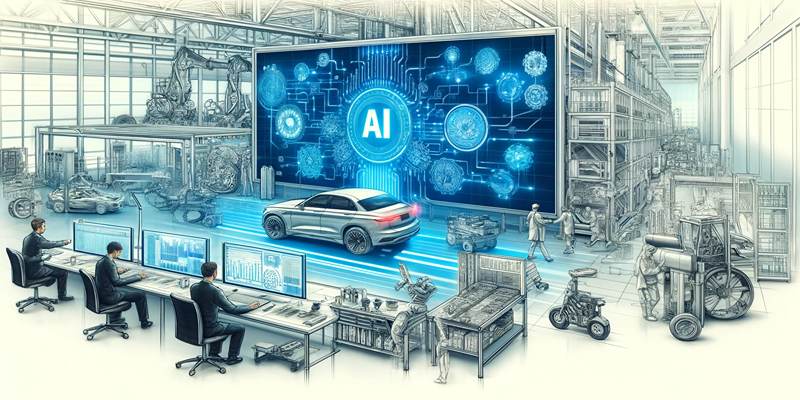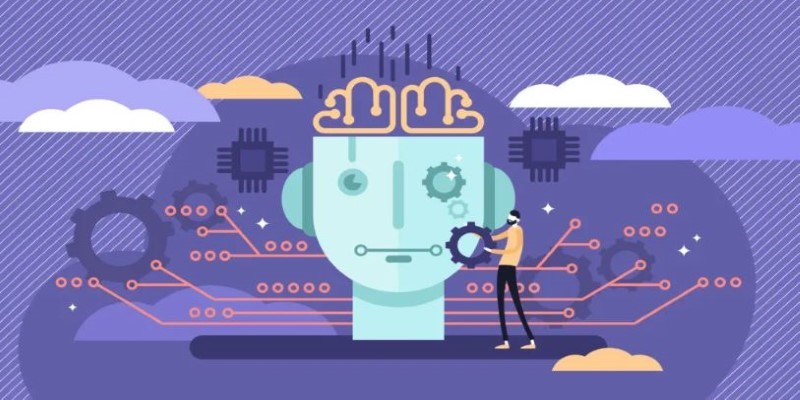Picture this: you’re trying to solve a simple problem with a product, but after navigating endless menus and waiting on hold, you’re no closer to a solution. This frustration is what AI in customer service aims to eliminate. Instead of long wait times and impersonal interactions, AI offers instant, intelligent responses that make life easier for customers. Whether it’s a chatbot helping you track an order or predictive AI anticipating your next need, this technology is redefining the way businesses interact with their customers.
But AI isn’t just about convenience—it’s about creating smarter systems that adapt and improve with each interaction. Let’s explore how implementing AI in customer service is transforming support into something faster, smarter, and more human-like.
The Role of AI in Enhancing Customer Support
When you hear the term customer service, you think of long wait times, frustrating hold music, and agents struggling to keep up with high volumes of inquiries, among other things. Business owners generally identify these issues as having become a norm in any business setting. However, AI can help with this by automating most of the repetitive work activities that take more time and resources from organizations.
Routine customer inquiries can be handled 24/7 through AI-driven tools such as chatbots and virtual assistants. These tools are designed to understand customers' questions, respond immediately, and guide them through troubleshooting steps. This will enhance the speed and efficiency of customer support while freeing human agents to deal with more complex or sensitive issues that require a personal touch.
Moreover, AI may be implemented to integrate with a customer relationship management (CRM) system so it can gather elaborate information regarding a customer's prior interactions. The AI may make highly individualized recommendations and provide solutions, and the service interaction will, on average, benefit from that interaction. For instance, the AI may propose services or products suited to the customer's buying history or related to browsing, making for more customized service provision.
Practical Applications of AI in Customer Service
There are many versatile applications of AI tools within customer services, and one of the most common tools is a chatbot. A chatbot is essentially a virtual assistant that can do everything from answering frequently asked questions to helping customers track their orders. Being able to answer a question quickly or accurately can resolve issues without the need for human intervention, thus usually resulting in shorter wait times and improved efficiency.

AI can also assist in analyzing customer feedback. Natural Language Processing (NLP) technology allows AI to process and understand customer sentiment, enabling businesses to identify pain points and areas for improvement. For example, if multiple customers are frustrated with a specific product feature, AI can highlight this trend, allowing businesses to address the issue proactively.
Another powerful application of AI in customer service is predictive analytics. By analyzing large volumes of customer data, AI can predict customer behavior and anticipate their needs. This predictive capability allows businesses to offer proactive support, such as reaching out to customers before they encounter an issue or providing personalized recommendations that increase customer satisfaction and loyalty.
Additionally, AI can improve call center efficiency. With AI-powered voice assistants, businesses can automatically route calls to the appropriate agents based on factors like customer history or the complexity of the issue. AI can also monitor calls in real-time, alerting managers to potential issues or offering suggestions for improving the conversation.
Overcoming the Challenges of Implementing AI
While AI offers many benefits, implementing it in customer service is not without its challenges. For one, businesses must invest in the right tools and technologies to ensure successful integration. This often requires a significant financial commitment, especially for small businesses with limited budgets.
Another challenge is ensuring that AI solutions are effectively trained to understand the nuances of human conversation. AI tools rely on vast amounts of data to learn and improve, so it’s essential to provide them with accurate, relevant information. If the AI system is not trained properly, it may not be able to respond appropriately to customer inquiries, which can lead to frustration and a poor customer experience.
Furthermore, businesses need to strike a balance between AI automation and human interaction. While AI is excellent for handling routine tasks, it’s important to have human agents available for more complex or emotionally charged issues. Customers may feel frustrated if they’re unable to speak with a human when they need help the most, so it’s crucial to ensure that AI is used in a way that enhances, rather than replaces, human support.
The Future of AI in Customer Service
As AI technology advances, its role in customer service will continue to grow, offering increasingly personalized and intuitive customer experiences. Future AI systems may engage in more sophisticated conversations, interpreting context and emotions more accurately. This evolution promises not only faster issue resolution but also a deeper level of customer interaction.

Additionally, integrating AI with technologies like augmented reality (AR) and the Internet of Things (IoT) could revolutionize customer support. AI-driven AR might enable customers to explore virtual products before purchasing, while IoT devices could notify businesses of issues before customers even realize them. Despite challenges such as proper training and balancing human interaction, the potential benefits are undeniable.
Implementing AI can significantly enhance efficiency, responsiveness, and customer satisfaction. Forward-thinking businesses adopting AI will gain a competitive edge, offering superior service that adapts to modern consumer expectations and transforming customer support into a more seamless, proactive experience.
Conclusion
AI is revolutionizing customer service by making it faster, more efficient, and more personalized. With the help of AI tools, businesses can automate routine tasks, provide better support, and gain valuable insights into customer behavior. While there are challenges to implementing AI, the benefits are clear, and the technology is rapidly improving. As AI continues to evolve, its role in customer service will only grow, helping businesses provide exceptional support to their customers. By embracing this technology, companies can stay competitive in an increasingly digital world, ensuring they meet customer expectations and enhance their overall service offerings.










